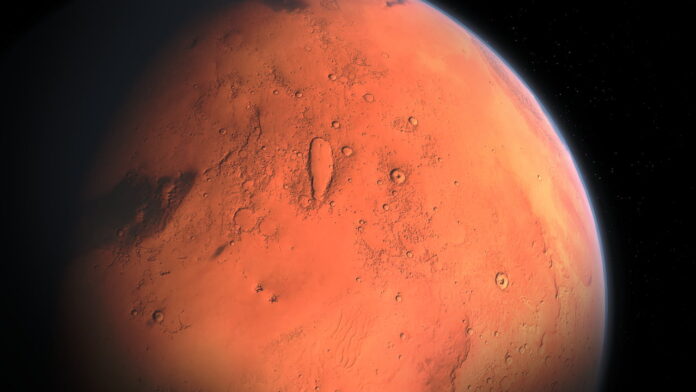As Earth grapples with the escalating climate crisis, the concept of establishing human colonies on other planets has transitioned from science fiction to a tangible goal for the future. The idea of a sustainable life beyond Earth is not just a dream of space enthusiasts but a potential necessity for the survival of humanity. The challenges of climate change compel us to rethink our approach to living and resource management, and the extreme conditions of space demand innovative solutions that could also benefit our home planet.
The vision of off-world colonies offers a unique opportunity to design societies from the ground up, incorporating sustainability and resilience into their very fabric. These communities could serve as test beds for advanced technologies and eco-friendly practices, potentially providing blueprints for a greener future back on Earth. The lessons learned from such endeavors could be invaluable in our quest to combat climate change and create a more sustainable world.
The Red Frontier: Mars as a Beacon for Climate Resilience
Mars, with its stark red landscapes and challenging environment, stands as the most promising candidate for humanity’s first off-world colony. The Red Planet’s hostile conditions mean that any human presence would necessitate a level of self-sufficiency and sustainability far beyond what is currently practiced on Earth. This necessity could drive innovation in ways that directly address the climate crisis.
The establishment of a Martian colony would require us to confront and solve some of the most pressing environmental issues. From water scarcity to extreme temperature fluctuations, living on Mars would force us to develop systems that are not only resilient but also efficient in resource use. These systems could then serve as models for climate resilience on Earth, where similar challenges are becoming increasingly common due to climate change.
Harnessing Martian Resources: A Blueprint for Eco-Friendly Colonization
The colonization of Mars presents an opportunity to implement eco-friendly practices from the outset. Utilizing Martian resources effectively and responsibly is crucial to minimize the environmental impact of human activities. In-situ resource utilization (ISRU) is a concept that involves using local materials for construction, manufacturing, and life support, thereby reducing the need for resource-intensive supply missions from Earth.
For instance, the extraction of water ice from the Martian soil and the production of building materials like bricks from Martian regolith could drastically reduce the environmental footprint of colonization efforts. By focusing on sustainable extraction and processing methods, a Martian colony could set a precedent for resource use that prioritizes minimal waste and maximal efficiency.
Off-World Agriculture: Growing Green in the Red Soil
Agriculture on Mars would be a cornerstone of self-sufficiency and sustainability. The challenge of growing food on a planet with no native soil fertility and a thin atmosphere rich in carbon dioxide could lead to breakthroughs in agricultural science. Hydroponic and aeroponic systems, which use nutrient-rich solutions instead of soil, could be optimized for Martian conditions, offering highly efficient methods of food production with minimal water use.
The development of genetically modified crops able to thrive in Martian conditions could also play a role in sustainable off-world agriculture. These crops would need to be hardy and efficient in their use of resources, traits that would be equally beneficial for agriculture in climate-stressed regions on Earth. The lessons learned from Martian farming could inform new agricultural practices that contribute to food security in the face of a changing climate.
Renewable Energy and Closed-Loop Systems: Powering Martian Habitats
The harsh Martian environment necessitates the use of renewable energy sources and closed-loop systems to power habitats. Solar energy, despite the greater distance from the Sun, could be harnessed efficiently using advanced photovoltaic technology. Additionally, the potential for wind energy on Mars, with its frequent dust storms, could be explored. The development of these renewable energy systems in the context of Mars could lead to more robust and efficient technologies that could be adapted for use on Earth.
Closed-loop life support systems are essential for Martian colonies to recycle water, air, and waste. These systems would need to be highly efficient and reliable, minimizing loss and maximizing reuse of resources. The innovation in closed-loop technologies driven by the needs of a Martian colony could provide valuable insights into sustainable living on Earth, where the efficient use of resources is becoming increasingly critical.
Lessons from Mars: Applying Off-World Innovations to Earth’s Climate Challenges
The innovations required for a sustainable life on Mars have the potential to address some of Earth’s most pressing climate challenges. The technologies and practices developed for off-world colonies could be adapted to improve sustainability and resilience on our home planet. For example, advanced recycling systems, efficient energy storage solutions, and sustainable habitat designs could all be integrated into Earth’s infrastructure to mitigate the effects of climate change.
The mindset shift required for living on Mars – one that embraces conservation, efficiency, and long-term sustainability – could influence global attitudes towards environmental stewardship. The experience of building a new society on Mars could inspire a new generation of Earth-based initiatives aimed at creating a greener, more sustainable future for all.
While the colonization of Mars may seem like a distant dream, the pursuit of this goal could yield significant benefits for Earth’s environment. By pushing the boundaries of what is possible in terms of sustainability and resource management, we can not only prepare for life on the Red Planet but also equip ourselves with the tools and knowledge to ensure a greener future on our own.
